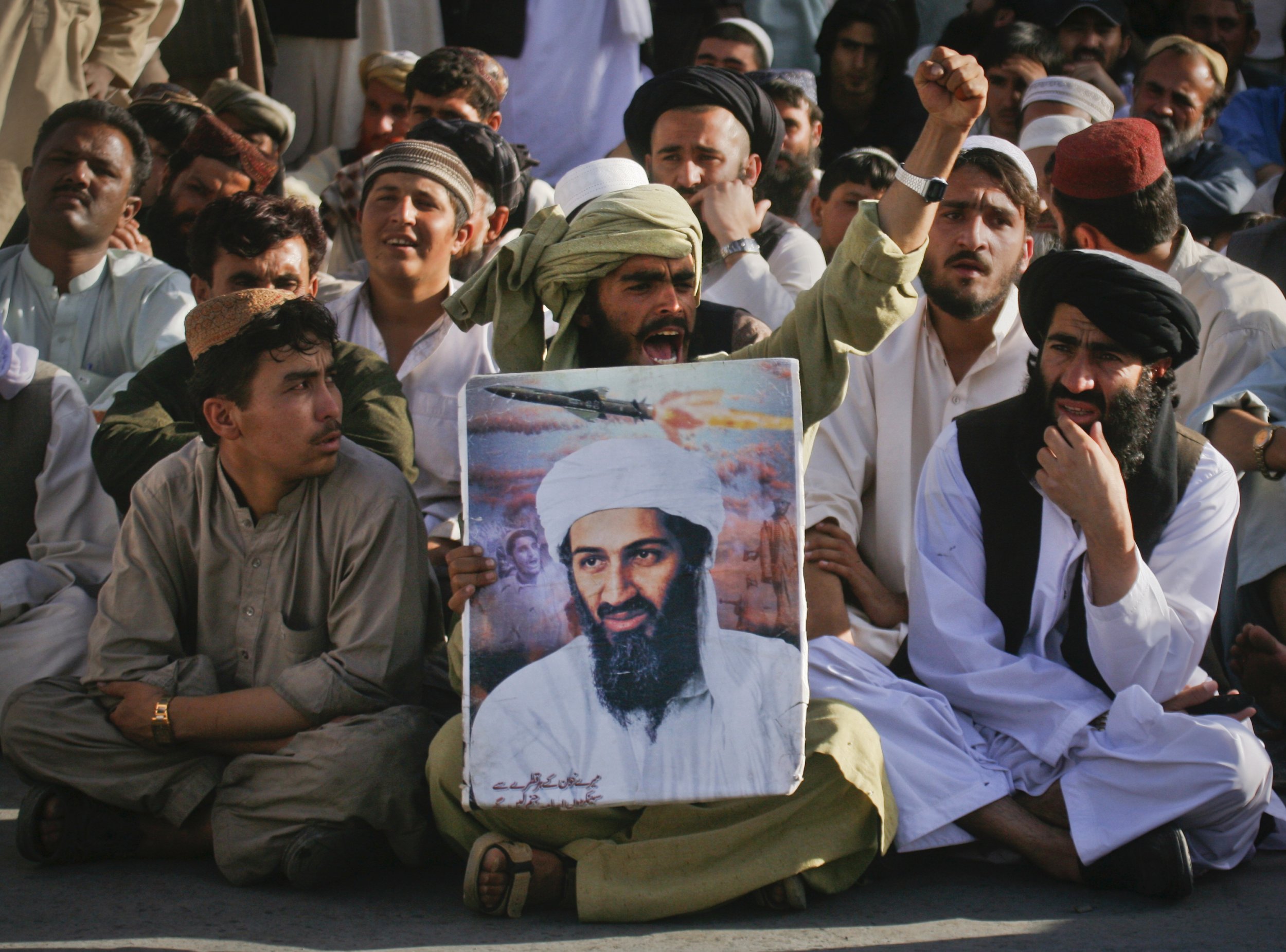
On Wednesday, the Office of the Director of National Intelligence (ODNI) released dozens of files recovered during the raid on Osama bin Laden's compound. The raid, which killed bin Laden, was one of the more celebrated moments of President Barack Obama's first term and provided a treasure trove of firsthand materials used by the September 11 mastermind for the intelligence community to inspect.
The files include both nonclassified materials and recently declassified information. The office refers to the complete collection as "Bin Ladin's Bookshelf," using an alternative spelling for the Al-Qaeda leader's last name.
Indeed, the files do include the titles on his bookshelf. Inside his home, authorities found copies of BusinessWeek, Foreign Policy, the Los Angeles Times, Military Review, Newsweek, Popular Science and Washington Quarterly. The majority of the articles found were from 2008 issues of Foreign Policy and Newsweek articles printed during the Bush administration.
Bin Laden also kept a number of books and religious texts, including the Koran, Muhammad in the Bible, profiles of bishops in the Church of England, Military Intelligence Blunders by Colonel John Hughes-Wilson, Obama's Wars by Bob Woodward and the Oxford History of Modern War by Charles Townsend, as well as dozens more English-language books.
There were also a number of manuals found, including numerous Adobe Photoshop manuals, a Dreamweaver manual and a manual to set up a printer for Macintosh. Among the documents found in the compound that intelligence officials believe were used by people besides bin Laden was a silkscreening manual, several video game guides and an Arabic calligraphy workshop. Pages of the Guinness World Records for children were also found.
In the compound, bin Laden kept a number of publications distributed by extremist organizations, including many from al-Furqan media, which now distributes ISIS materials. He also studied terrorist research distributed by think tanks, including the Search for International Terrorist Entities Institute, Transparency International and numerous editions of the Jamestown Foundation publication. He kept a text entitled "Stealing Al-Qaeda's Playbook" from the Combating Terrorism Center at West Point.
Bin Laden also took to studying France, there were 19 items on the nation included in the files, including economic reports from the country, a profile of its water and radioactive waste management. Bin Laden kept numerous maps of Afghanistan, Iran and the world. Notably, he kept maps of Iran's missile sites from 2006 and two maps of Iran's nuclear enrichment sites and nuclear sites.
Among the declassified materials were numerous letters bin Laden sent, including reports Al-Qaeda's external operations, messages to his wife and daughter, and messages to the Islamic community.
In a letter to his wife, he writes:
My will: If I get killed, and you want to return to your family, then that is okay, but you have to raise my children properly, and to watch them, and be careful of bad company for them, especially after puberty, especially the girls `Asma` and (TN: possibly, Duha). So be very careful about them and if you can marry them to mujahidin, then that is best, or else to good people.
After a State of the Union speech given by President George Bush, bin Laden wrote in a letter that the speech was "filled with lies and misguidance." The Al-Qaeda leader asks: "Did Bush reach such a low level that he ridicules the intelligence of his audience? And did all of his audience reach an extent that they accept this belittlement and mocking of their intelligence?"
Though these files now available to the public are numerous, the intelligence community may release more files after a review. ODNI said "hundreds more documents" will be reviewed in the near future for possible declassification.
Uncommon Knowledge
Newsweek is committed to challenging conventional wisdom and finding connections in the search for common ground.
Newsweek is committed to challenging conventional wisdom and finding connections in the search for common ground.
About the writer
Polly Mosendz is a breaking news reporter for Newsweek. She was previously a staff writer for The Wire and associate ... Read more





